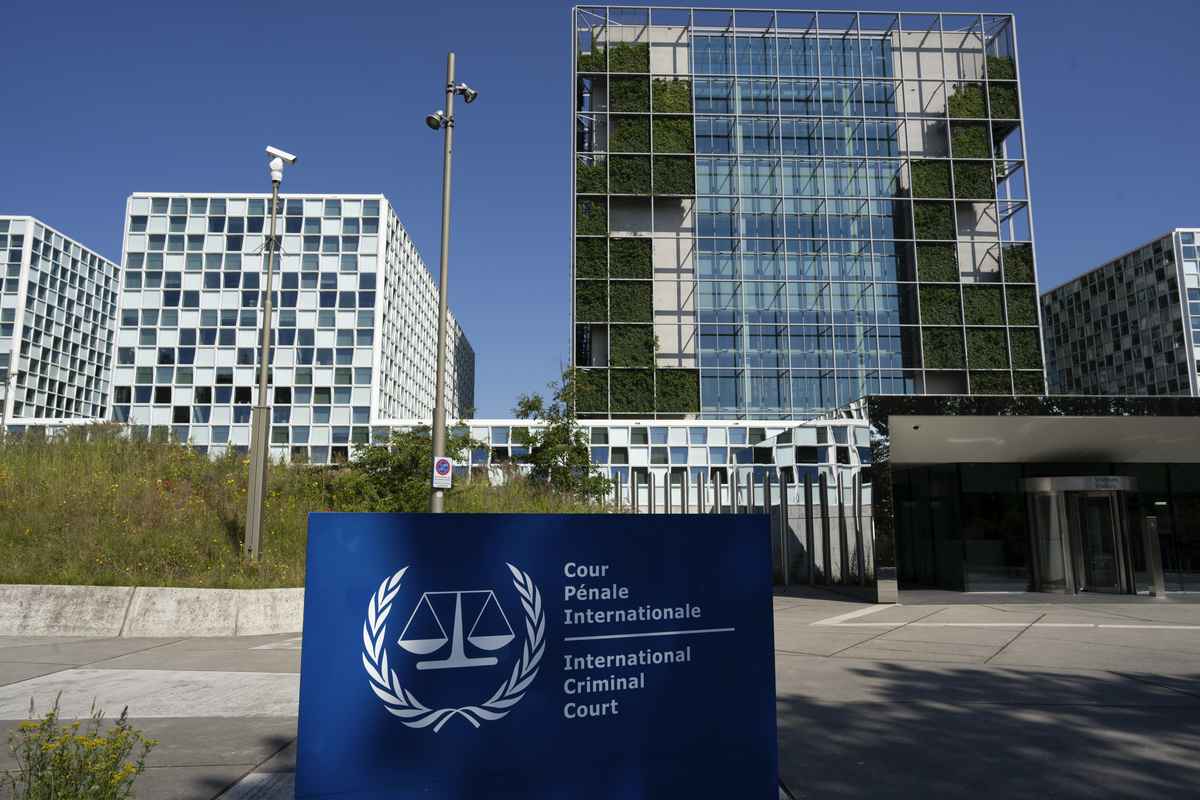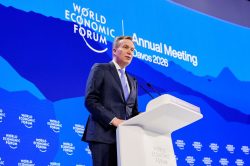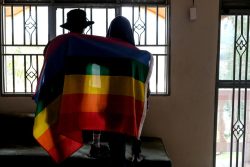The International Criminal Court’s Chief Lashes Out at Threats from Russia and a US Senator

Exterior of the International Criminal Court in The Hague, Netherlands, Wednesday, June 26, 2024.
11:23 JST, December 3, 2024
THE HAGUE, Netherlands (AP) — The president of the International Criminal Court lashed out on Monday at Russia for targeting its prosecutors and judges over the panel’s investigation of Russian President Vladimir Putin, and slammed comments by a U.S. senator threatening the court.
Judge Tomoko Akane said in her address to the annual meeting of the world’s top war-crimes court that attacks against the ICC were shameful — referring to Russia’s arrest warrants for the court’s chief prosecutor Karim Khan and several of its judges.
These individuals are “subjected to arrest warrants from a permanent member of the U.N. Security Council, merely for having faithfully and diligently carried out their judicial mandate per the statutory framework and international law,” she said.
Moscow issued warrants for Khan and the others in response to the ICC investigation and arrest warrants for Putin over the war in Ukraine.
The Japanese judge also had harsh words for U.S. officials, including Sen. Lindsey Graham, who has called the court a “a rogue and politically motivated organization” after the judges last month issued an arrest warrant for Israeli Prime Minister Benjamin Netanyahu.
Graham said he was confident Donald Trump’s incoming administration would “respond forcefully” to these actions by the court.
“The court is being threatened with draconian economic sanctions by another permanent member of the Security Council as if it was a terrorist organization,” Akane said, without elaborating.
During his last term in office, Trump had sanctioned the court’s previous prosecutor, Fatou Bensouda, with a travel ban and asset freeze for investigating American troops and intelligence officials in Afghanistan.
What is the ICC meeting about?
Monday’s meeting marks the start this week of the Assembly of States Parties, which represents the ICC’s 124 member countries, of the ICC’s 23rd conference to elect committee members and approve the court’s budget against a backdrop of unfavorable headlines.
The ICC was established in 2002 as the world’s permanent court of last resort to prosecute individuals responsible for the most heinous atrocities — war crimes, crimes against humanity, genocide and the crime of aggression.
The court only becomes involved when nations are unable or unwilling to prosecute those crimes on their territory. To date, 124 countries have signed on to the Rome Statute, which created the institution. Those who have not include the United States, Israel, Russia and China.
The ICC has no police force and relies on member states to execute arrest warrants.
Warrants for Netanyahu and his ex-defense minister
The decision to issue warrants for Netanyahu and Israel’s former Defense Minister Yoav Gallant has been denounced by critics of the court and given only milquetoast approval by many of its supporters, a stark contrast to the robust backing of an arrest warrant for Putin last year over war crimes in Ukraine.
President Joe Biden called the warrants for Netanyahu and the former defense minister outrageous and vowed to stand with Israel. A year ago, Biden said the warrant for Putin justified and said the Russian president had committed war crimes.
France said it would “respect its obligations” but would need to consider Netanyahu’s possible immunities. When the warrant for Putin was announced, France said it would “lend its support to the essential work” of the court.
Another member country, Austria, begrudgingly acknowledged it would arrest Netanyahu but called the warrants “utterly incomprehensible.” Italy called them “wrong” but said it would be obliged to arrest him. Germany said it would study the decision. Member Hungary has said it would stand with Israel instead of the court.
Global security expert Janina Dill expressed concern such responses could undermine global justice efforts, saying they really have “the potential to damage not just the court, but international law.”
Milena Sterio, an expert in international law at Cleveland State University, told The Associated Press that sanctions against the court could affect a number of people who contribute to the court’s work, such as international human rights lawyer Amal Clooney. Clooney advised the current prosecutor on his request for the warrants for Netanyahu and others.
“Sanctions are a huge burden,” Sterio said.
Accusations against ICC’s chief prosecutor
Also hanging heavy over the meeting in The Hague are the internal pressures that Khan, the chief prosecutor, faces. The 54-year-old British lawyer faced allegations that he tried to coerce a female aide into a sexual relationship and groped her, according to an AP report in October.
Two co-workers in whom the woman confided reported the alleged misconduct in May to the court’s independent watchdog, which says it interviewed the woman and ended its inquiry after five days when she opted against filing a formal complaint. Khan was never questioned. He has denied the claims.
The Assembly of States Parties has announced it will launch an external probe into the allegations.
Khan, who took the floor after Akane, did not address the accusations against him or the threats against the court beyond saying the institution was facing “unprecedented challenges.”
He instead highlighted his office’s request last week for an arrest warrant against the head of Myanmar’s military government, senior Gen. Min Aung Hlaing, for attacks against the country’s Rohingya Muslim minority. Judges have yet to decide on that request.
Khan also said he planned to request warrants related to Afghanistan and Sudan in the coming months.
Late last week, six countries including France, Luxembourg and Mexico asked Khan’s office to look into possible crimes in Afghanistan since the Taliban took control in 2021. While Khan isn’t obligated to open an investigation in response to such a request, historically court prosecutors have done so.
The court, which has long faced accusations of ineffectiveness, will have no trials pending after two conclude in December. While it has issued a number of arrest warrants in recent months, many high-profile suspects remain at large.
Also, ICC member states don’t always act — Mongolia, an ICC member, refused to arrest Putin when he visited in September. Sudan’s former President Omar al-Bashir is wanted by the ICC over accusations related to the conflict in Darfur, but his country has refused to hand him over.
“It becomes very difficult to justify the court’s existence,” Sterio said.
Top Articles in News Services
-

Survey Shows False Election Info Perceived as True
-

Hong Kong Ex-Publisher Jimmy Lai’s Sentence Raises International Outcry as China Defends It
-

Japan’s Nikkei Stock Average Touches 58,000 as Yen, Jgbs Rally on Election Fallout (UPDATE 1)
-

Japan’s Nikkei Stock Average Falls as US-Iran Tensions Unsettle Investors (UPDATE 1)
-

Japan’s Nikkei Stock Average Rises on Tech Rally and Takaichi’s Spending Hopes (UPDATE 1)
JN ACCESS RANKING
-

Producer Behind Pop Group XG Arrested for Cocaine Possession
-

Japan PM Takaichi’s Cabinet Resigns en Masse
-

Man Infected with Measles Reportedly Dined at Restaurant in Tokyo Station
-

Israeli Ambassador to Japan Speaks about Japan’s Role in the Reconstruction of Gaza
-

Videos Plagiarized, Reposted with False Subtitles Claiming ‘Ryukyu Belongs to China’; Anti-China False Information Also Posted in Japan



























